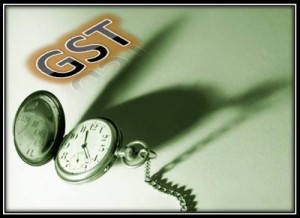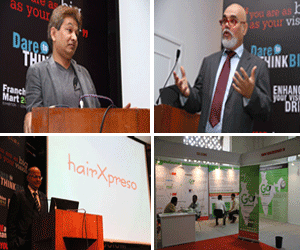On credible fiscal deficit plan
I think the numbers are credible. The fuel subsidy bill is likely to be smaller as we are correcting diesel price. We have also capped LPG number per household. So there is every reason to believe that fuel subsidy is going to be lower this year. For food subsidy, we have made our calculations and normal food subsidy is expected to be Rs. 80,000 crore. An additional provision has been made for the Food Security Act of Rs. 10,000 crore. But if it requires more money, we will provide it. That is a question required to be addressed when the Food Security Act is passed. Since, I don’t have a Bill before me, I can’t really say what the figures will be. But as I speak to you, I think we have made a correct assessment of subsidy bill.
As far as tax revenues are concerned, when the economy is growing at 5 percent in the current fiscal, tax revenues are growing at 16.7 percent. Next year, if the economy grows at 6.1-6. 7 percent, there is no reason to assume that tax revenues will not grow at a higher rate. The extra revenue will hopefully come from additional resource mobilization. We have stated upfront that in direct and indirect taxes side we will get about Rs. 18,000 crore of revenue which forms an overall growth of 19 per cent.
On the tax residency certificate (TRC)
I assume that you are referring to Section 90 A. This Section has two points. One is to deal with GAAR and is not relevant as GAAR is expected to come in 2016. The other part of the section is sub section 4, which is already there, and an explanation which has been added. The explanation in the last year was in the memorandum.
What is being done now is to bring that memorandum in act. It is possible that the memorandum and the new explanation are worded in a manner that there is a certain ambiguity. But let me clarify… all DTAAs are for two conditions. One is the condition of residency and the other condition is that the person must be beneficial owner. They are two separate conditions.
For example, in the case of interest income and dividend income the person must be a resident and must be a beneficial owner to claim the benefit of the treaty. In some cases, the benefit is attached to other forms of income. So either one or both conditions will apply to interest dividend and royalty. If you produce a TRC, that is a complete answer to the status of resident. But whether you are the beneficial owner is a separate issue. I am making myself clear that a TRC only certifies that you are a resident. It does not certify that you are a beneficial owner. Whether you are a beneficial owner is a separate condition that you will have to certify. That is the purpose of the section but if the section has an ambiguity, we will clarify it.
Postponement of GAAR
Treaties are written over a period of time by different administrations and follow a model. It contains two conditions — the condition of residency and a condition of beneficial ownership. As far as residency is concerned, we will accept the TRC a foreign investor produces from that country. As far as beneficial ownership is concerned, that is a question of fact, maybe a mixed question of fact and law. So, we are not doing anything unfriendly to the foreign investor. Since you have to satisfy two conditions, you satisfy the first condition by producing the certificate of residency. You have to still satisfy the second condition where the second condition applies.
Tweaking excise and service tax rate midyear
I can not predict what mid-course corrections will take place but by definition a mid-course correction could either be an increase or a decrease. So, it is difficult to say anything at the moment. At the moment, we are keeping at the standard rate.
On Spectrum
As far as spectrum yields are concerned, we have taken note of the fact that this year the spectrum auctions did not yield the amount that was originally set of Rs. 40,000 crore. It has given us a paltry amount of a little over Rs. 1,000 crore. But for next year, we have got a written statement from the department of telecom, which divides the spectrum revenues into license fees, revenue sharing and the one time fees and the quantity of spectrum that we will auction.
We have set the target after they gave us in writing how the cash will flow. If there are any unexpected developments, we will have to factor them later. The spectrum will be auctioned… If a serious telecom player wants to remain in the Indian market, it must acquire spectrum. At present, there is a lot of uncertainty about the auction, but I am sure this uncertainty will be resolved.
On GST & DTC
On DTC, we have set a deadline for ourselves. In the Budget speech, I have said that I hope to be able to bring back the DTC Bill to the Parliament by the end of the Budget session. So there is indeed a deadline for the DTC.
As far GST is concerned, I can not lay down any deadline. It depends on the state finance ministers. What I have said in the speech is a faithful reflection of the minutes of the last meeting sent to me by Sushil Modi, the chairman of that group and the finance minister of Bihar.
The minutes talk about the Constitutional amendment, a model GST law and compensation.
I have accepted the minutes and to show my commitment to GST, I have also set aside Rs. 9,000 crore as a balance of the first installment. Now the ball is in the court of the state finance ministers. I hope to meet them shortly, as soon as they finish their budget work, and then take it forward. And if they are willing to take one step forward, we are willing to take one step forward.
If we can forge a consensus, we should have a GST constitution amendment draft and a GST bill draft in a few months. There is no reason why GST should be delayed.
On retrospective amendments to Section 9
We cannot discuss case specific matters. The amendment that was introduced by my predecessor may have risen as a result of a judgment of a court in order to clarify an earlier law of the Parliament. But, the court had taken a different view and the Parliament made the amendment restoring the original meaning.
So that is how that case was sought to be settled but the case was not settled. When we issued a reminder to Vodafone about the tax liability, they replied that they do not owe the government anything and would like to take us to arbitration.
Since then, we have had discussions and, Vodafone has now offered conciliation. As I said before the matter will go the Cabinet. If the Cabinet accepts the offer, the matter will go to conciliation. Conciliation is different from arbitration. By conciliation, a conciliator can suggest a way forward and both sides have to accept it before there can be a solution.
The two sides may agree, may not agree. The larger question is on how retrospective taxation has to be applied. We have the report of the Parthasarathi Shome committee on the issue, which is under examination. If it becomes necessary for the government to make a retrospective law, in such a case government should only collect the tax and not the penalty and interest.































 +91 9909960054
+91 9909960054